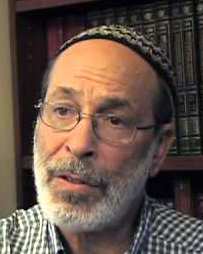Rabbi Abraham Joshua Heschel taught that there are two ways of being in the world: “the way of expediency” and “the way of wonder.” In the former, we seek to take what we can from the world and others; in the latter, our focus is on how we can serve. When we are driven by expediency, Heschel explains, “we accumulate information in order to dominate;” but when we are driven by awe and wonder, “we deepen our appreciation in order to respond.” (Man is Not Alone: A Philosophy of Religion (1951), pp. 36, 146.)¹ Early 20th century Rabbi Eliyahu Dessler, best known for his writing on the philosophy of love, offers a similar teaching that we each are offered the choice to be a “giver,” like G!d (the ultimate “Giver”), or a “taker,” driven by egotism and selfishness. (Mikhtav Me-Eliyahu, vol. 1, pp. 32-33). In times of transition and stress, when fear is prone to set in, the choice can appear especially difficult.
Our Torah portion, Ki Tavo, teaches how to live as a “giver,” in awe and wonder, even in stressful times, contrasted by the haftarah’s vision of us as “takers,” marked by obsessive accumulation in order to dominate. Perhaps they are paired to remind us that the choice is always ours.
Our parshah opens with instructions for the coming time of stressful transition when we will leave our desert wanderings behind and enter a new paradigm in the Promised Land. The parshah offers us the first fruits ceremony, where we demonstrate our profound awe and gratitude by giving the first and best fruits of our harvest. Despite the time of upheaval, the ceremony bursts with the humility that comes from knowing that all the Earth is G!d’s and we are but sojourners, here for the proverbial weekend. Our awe and humility are amplified by the ceremony’s liturgy, which begins by acknowledging that arami oveid avi (Deut. 26:5), often translated as “my father was a fugitive Aramean,” but which we might today translate as “my father was a Syrian refugee.” At the end of the Torah’s recitation of the liturgy of awe and praise, Moshe instructs us that we may enjoy the bounty of the land, together with the Levite and the stranger in our midst. (Deut. 26:11).
Thus, the ceremony is bookended by our status as former refugees and our present obligation to share with the stranger. It exemplifies a life built on an internal operating system of awe and wonder, which, teaches Heschel, serves to “deepen our gratitude in order to respond.”
But our haftarah, Isaiah 60, as haftarot often do, starkly contrasts with the message of the parshah. It also speaks to a time of transition into a new paradigm, but the response is markedly different. It begins optimistically, promising that the nation will be reunited and Israel will be made great again, but almost imperceptibly moves to an imagined future ultra-nationalist state.
Isaiah prophesizes: “The wealth of the sea shall pass on to you, the riches of nations shall flow to you,” flowing to us from neighboring Midian, Ephah, Sheba, Kedar, and Nebaiot. (v. 5-7). And by verse 10, Isaiah’s vision gets downright frightening, saying that not only will there be a big beautiful wall around Jerusalem, but “aliens will build the walls for us, foreign kings will serve us (G!d’s people).” It then describes in detail how the wealth of distant lands will pour into Israel. Our bronze will be replaced by gold, our iron by silver, and wood by bronze, painting a picture of obsession with material wealth (v. 17). Although we have been forsaken and hated in the past (v.15), no nation will ever take advantage of us again; in fact, as to nations that do not serve us, “they shall perish.” (v. 12). The section concludes with Isaiah promising that, “And you shall name your walls ‘Victory’ and your gates ‘Renown.’” (60:18)
As one of the seven haftarot of consolation following the destruction of Tisha B’av and leading to Rosh Hashanah, the p’shat – simple meaning – of this haftarah is intended consolation. But a close reading shows how easy it is, when seeking consolation in times of upheaval and distress, to desire walls around us built by our neighbors and called “Victory,” with insistence that other nations serve us and all their wealth flow to us. The haftarah imagines us as the ultimate “takers,” to use Heschel’s language.
Times of stressful transition have in them potential for either the response of wonder and awe OR wealth and wall. We can connect with wonder and awe by following the Torah’s formula of recalling our past as refugees, reminding ourselves that all we have belongs to G!d, and that we must share it with the strangers among us. Or, we can declare that we will be great again by demanding that other nations build walls for us, that their kings serve us, and that their wealth flow to us. Perhaps the contrasting haftarah vision as “takers” is offered to us by the sages to remind us that the choice of being givers or takers is always ours.
1For an excellent discussion of these two life-orientations in Heschel’s thought, see Shai Held, Abraham Joshua Heschel: The Call of Transcendence (2013), pp. 37-39.
Rabbi Ed Stafman is in his tenth year of serving Congregation Beth Shalom in Bozeman, Montana, and is a Truah rabbinic chaver.


